Influencers: Women Tech Leaders
The future of the federal government will comprise a workforce that better represents the diverse population it serves, and agencies are strategizing on how to make this a reality. In many ways, these initiatives will impact technology priorities and processes, including recruitment efforts, Agile frameworks, artificial intelligence, data management and more. With women representing only a quarter of the entire STEM field, the calling for women technology leaders to public service is vital and urgent. These prominent women discuss the solutions to challenges many technology teams are facing governmentwide.

Speakers / Panelists
Speakers / Panelists
-
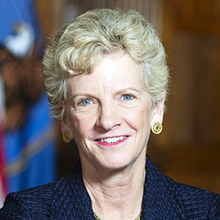 Robin Carnahan Administrator GSA
Robin Carnahan Administrator GSA
Speakers / Panelists
-
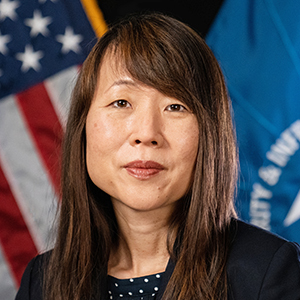 Valerie Cofield Chief of Strategy, Policy and Plans CISA
Valerie Cofield Chief of Strategy, Policy and Plans CISA -
 Andrea Fletcher Executive Director of the Digital Service CMS
Andrea Fletcher Executive Director of the Digital Service CMS -
 Moderator Kate Macri Senior Researcher GovCIO Media & Research
Moderator Kate Macri Senior Researcher GovCIO Media & Research
Faced with a 2021 executive order for the federal government to prioritize diversity, equity, inclusion and accessibility, agencies are developing new strategies that impact technology and human capital management teams. This also includes maintaining an effective HR staff that can protect the diversity and equity principles for how federal employees are hired and managed. These leaders discuss how they are overcoming challenges to shape a more technologically equitable future.
Speakers / Panelists
-
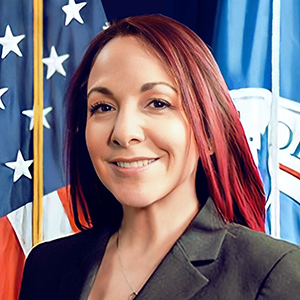 Monica Langley Deputy CIO FEMA
Monica Langley Deputy CIO FEMA -
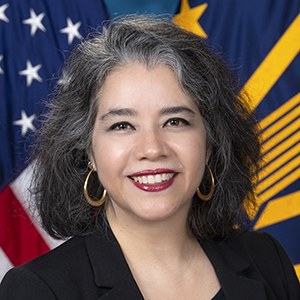 Laura Prietula Acting Deputy CIO, Electronic Health Record Modernization Integration Office VA
Laura Prietula Acting Deputy CIO, Electronic Health Record Modernization Integration Office VA -
 Liza Zamd Attorney Advisor in the Office of the Vice Chair EEOC
Liza Zamd Attorney Advisor in the Office of the Vice Chair EEOC -
 Moderator Sarah Sybert Staff Writer/Researcher GovCIO Media & Research
Moderator Sarah Sybert Staff Writer/Researcher GovCIO Media & Research
Speakers / Panelists
Following a 2021 executive order calling on agencies to advance racial equity and an OMB memo directing agencies to assess their equity barriers, federal agencies are embracing data as a strategic asset for these goals. As agencies develop data governance, policy and infrastructure, advancing equity remains critical. We’ll discuss with federal leaders how they’re using data, building modernized infrastructure and reducing burdens via emerging technology in order to promote equity and representation while driving their missions forward.
Speakers / Panelists
-
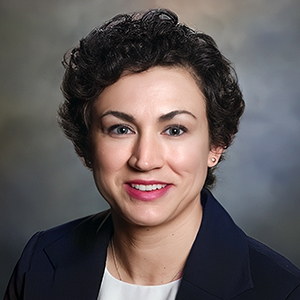 Rebecca Boyles Center for Data Modernization Solutions RTI International
Rebecca Boyles Center for Data Modernization Solutions RTI International -
 Jennifer Moser Associate Director of Scientific Programs, Million Veteran Program, VA
Jennifer Moser Associate Director of Scientific Programs, Million Veteran Program, VA -
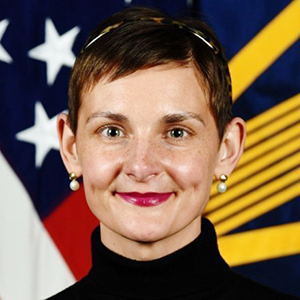 Katie Savage Deputy Chief Digital and Artificial Intelligence Officer DOD
Katie Savage Deputy Chief Digital and Artificial Intelligence Officer DOD -
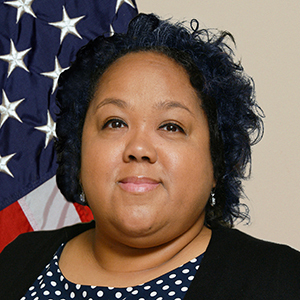 Charneta Samms CTO, DEVCOM U.S. Army
Charneta Samms CTO, DEVCOM U.S. Army -
 Moderator Melissa Harris Senior Researcher GovCIO Media & Research
Moderator Melissa Harris Senior Researcher GovCIO Media & Research
Speakers / Panelists
Cybersecurity and Infrastructure Security Agency (CISA) Director Jen Easterly said she wants 50% of the cybersecurity workforce to be women by 2030. CISA estimates there are half a million unfilled cybersecurity jobs, which poses a national security risk due to the prevalence of malicious cyber activity impacting critical infrastructure sectors. Female cyber leaders will discuss the paths that led them to their roles and their priorities in these agency leadership positions.
Speakers / Panelists
-
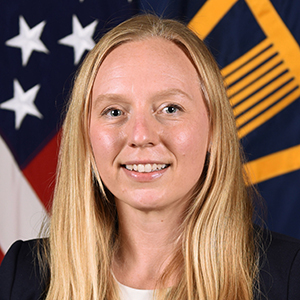 Dr. Kelly Fletcher Principal Deputy CIO DOD
Dr. Kelly Fletcher Principal Deputy CIO DOD -
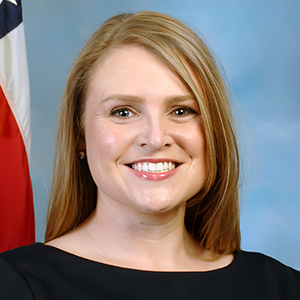 Cynthia Kaiser Section Chief, Cyber Division FBI
Cynthia Kaiser Section Chief, Cyber Division FBI -
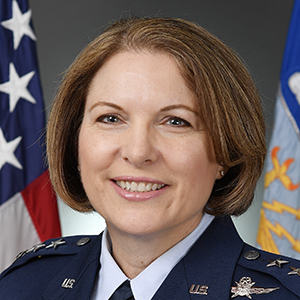 Lt. Gen. Mary O'Brien Deputy Chief of Staff for Intelligence, Surveillance, Reconnaissance and Cyber Effects Operations U.S. Air Force
Lt. Gen. Mary O'Brien Deputy Chief of Staff for Intelligence, Surveillance, Reconnaissance and Cyber Effects Operations U.S. Air Force -
 Denise Sisson Vice President of Archon Sales ID Technologies
Denise Sisson Vice President of Archon Sales ID Technologies -
 Moderator Kate Macri Senior Researcher GovCIO Media & Research
Moderator Kate Macri Senior Researcher GovCIO Media & Research
Speakers / Panelists
-
 Rebecca Boyles Director, Center for Data Modernization Solutions, RTI International
Rebecca Boyles Director, Center for Data Modernization Solutions, RTI International -
 Robin Carnahan Administrator, GSA
Robin Carnahan Administrator, GSA -
 Valerie Cofield Chief of Strategy, Policy and Plans, CISA
Valerie Cofield Chief of Strategy, Policy and Plans, CISA -
 Andrea Fletcher Executive Director of the Digital Service, CMS
Andrea Fletcher Executive Director of the Digital Service, CMS -
 Dr. Kelly Fletcher Principal Deputy CIO, DOD
Dr. Kelly Fletcher Principal Deputy CIO, DOD -
 Eunice Ikene Attorney Advisor in the Office of the Chair,, EEOC
Eunice Ikene Attorney Advisor in the Office of the Chair,, EEOC -
 Cynthia Kaiser Section Chief, Cyber Division, FBI
Cynthia Kaiser Section Chief, Cyber Division, FBI -
 Monica Langley Deputy CIO, FEMA
Monica Langley Deputy CIO, FEMA -
 Jennifer Moser Associate Director of Scientific Programs, Million Veteran Program, VA
Jennifer Moser Associate Director of Scientific Programs, Million Veteran Program, VA -
 Lt. Gen. Mary O'Brien Deputy Chief of Staff for Intelligence, Surveillance, Reconnaissance and Cyber Effects Operations, U.S. Air Force
Lt. Gen. Mary O'Brien Deputy Chief of Staff for Intelligence, Surveillance, Reconnaissance and Cyber Effects Operations, U.S. Air Force -
 Laura Prietula Acting Deputy CIO, Electronic Health Record Modernization Integration Office, VA
Laura Prietula Acting Deputy CIO, Electronic Health Record Modernization Integration Office, VA -
 Charneta Samms CTO, DEVCOM, U.S. Army
Charneta Samms CTO, DEVCOM, U.S. Army -
 Denise Sisson Vice President of Archon Sales, ID Technologies
Denise Sisson Vice President of Archon Sales, ID Technologies -
 Liza Zamd Attorney Advisor in the Office of the Vice Chair, EEOC
Liza Zamd Attorney Advisor in the Office of the Vice Chair, EEOC -
 Kate Macri Senior Researcher, GovCIO Media & Research
Kate Macri Senior Researcher, GovCIO Media & Research -
 Sarah Sybert Staff Writer/Researcher, GovCIO Media & Research
Sarah Sybert Staff Writer/Researcher, GovCIO Media & Research -
 Melissa Harris Senior Researcher, GovCIO Media & Research
Melissa Harris Senior Researcher, GovCIO Media & Research



